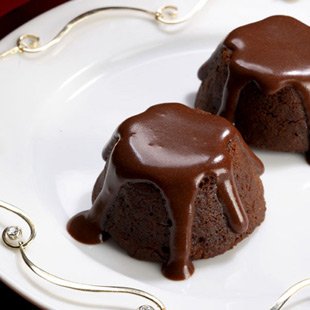

Valentine's Day is around the corner, which brings to mind two Cupid's Day standbys: kissing and chocolate. Other than the fact that both are symbols of romance, what do they actually have in common? A whole lot! A small study in the UK showed that chocolate and kisses stimulate the body (and the mind) in very similar ways, with one of them (can you guess which?) out-stimulating the other.
The researchers looked at six couples and measured their brain waves when standing with their eyes open, while kissing and while letting a piece of chocolate melt in their mouths. They measured the activity of two types of brain activity -- one that's activated when you're feeling relaxed and alert (alpha bands) and another (beta bands) that's in action when you're feeling alert but anxious (coffee drinking might increase this type of activity).
What researchers found is that both kissing and chocolate eating increased the type of activity signaling alertness and relaxation, but in some individuals, chocolate produced a greater effect, which also lasted longer than that from kissing. At the same time, chocolate also dampened the activity of stress-registering beta bands more than kissing did (although, granted, it's probably less stressful to eat chocolate than to kiss in front of a team of researchers). Their conclusion? Chocolate is more stimulating (in a relaxed, yet alert, heart-beating-faster kind of way) than kissing. Here's why:
First, the basics. Chocolate's essential components are sugar and fat, which to our caveman brains are kind of like the food equivalent of crack -- foods high in a combination of sugar, fat and salt release dopamine in our brain, producing a natural high.
Next come the naturally occurring chemicals, of which there are several. Chocolate contains caffeine and theobromine -- both mental stimulants -- phenylethylamine (PEA), which raises our blood pressure and heart rate, and tryptophan, which helps release serotonin (sugar also produces that effect).
Need a lift? 3 Foods to Boost Your Mood Naturally
Lastly, the texture of chocolate makes it highly pleasurable to eat. Chocolate's creamy, melt-in-your-mouth quality has the sexy distinction of melting at body temperature. This slow melting not only prolongs your enjoyment, but also means that it stimulates your sense of smell (another thing it shares with kissing).
On the health front, chocolate -- and we're talking dark chocolate here -- has much to recommend it (in moderation -- remember, it's still high in fat and sugar, which can add a lot of unwanted calories if eaten with abandon). That's because chocolate has lots of antioxidants, just like green tea. Chocolate eating has also been linked to low blood pressure and increased insulin sensitivity. So with all the stimulating, health-promoting properties of chocolate, do you even need a make-out session? Go ahead, have both.
Recipes to Try: Healthy Chocolate Recipes
By Kerri-Ann Jennings
Kerri-Ann, a registered dietitian, is the associate editor of nutrition for EatingWell magazine, where she puts her master's degree in nutrition from Columbia University to work writing and editing news about nutrition, health and food trends. In her free time, Kerri-Ann likes to practice yoga, hike, cook and bake.
Related Links from EatingWell: